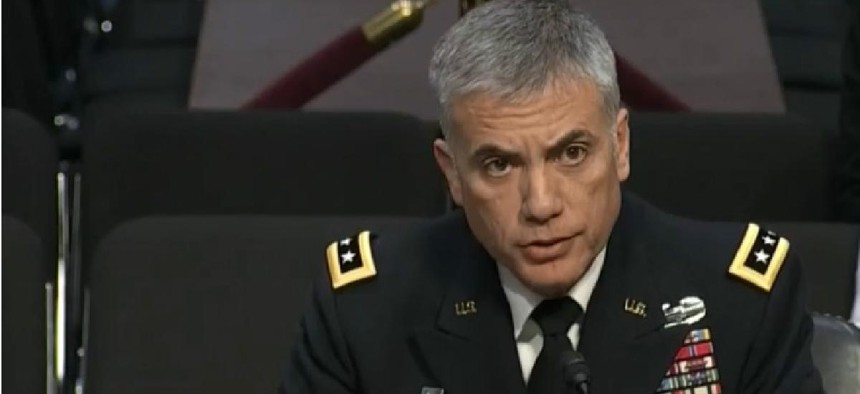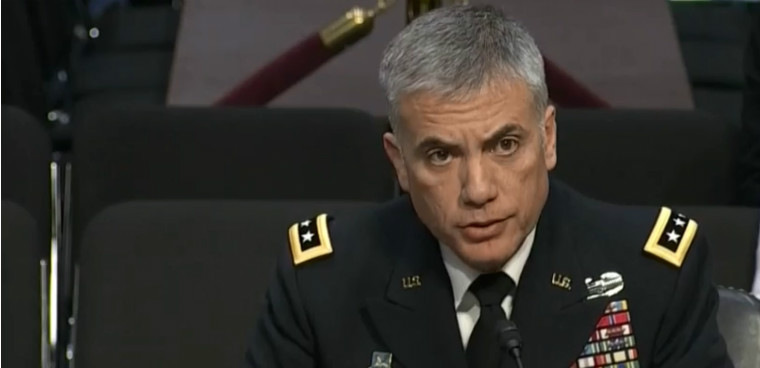Cyber Command looks to expand

U.S. Cyber Commander Gen. Paul Nakasone said that with the current state of threats, he expects the cyber mission force to expand beyond 133 teams.

CyberCom chief and NSA Director Gen. Paul Nakasone
The U.S. military is going to need more cyber workers, according to Gen. Paul Nakasone, head of U.S. Cyber Command.
The agency is executing on a fiscal year budget of about $610 million in 2019 – it's first year as an independent combatant command. The budget supports 1,520 military and civilian personnel and contractors and a Cyber Mission Force of 4,406 military and civilians.
Nakasone told Congress that current mission requirements would require an expansion of Cyber Command's mission forces during a Senate Armed Services Committee hearing on the 2020 budget request Feb. 14.
"My sense as we continue to operate more, as our adversaries continue to improve, that there will be requirements that will probably be outside the 133 teams we have right now."
U.S. Cyber Command is also helping stand up defensive teams in the Army Reserves and National Guard. But while that will help strategically, Nakasone said, it may not be enough especially as election security support needs increase as the U.S. ramps up for the 2020 presidential election.
Senators pushed Nakasone, who also heads the National Security Agency, for clear, on-the-record answers that qualified the seriousness of Russia and China's cyber threats to the U.S.
Chief among them was Sen. Richard Blumenthal (D-Conn.) who said the American people deserve to know of the extent of the threats and the Defense Department's successes made against them.
"Very few of the American public know about the successes. They assume that meddling and interference in our election system when it occurs simply is undeterred or unstopped. And again, I think, without going into any of the details there are some successes that the American people should know happened, but at the same time should know that the threats continue," Blumenthal said.
Blumenthal asked Nakasone whether he agreed and if China had engaged in disinformation campaigns and attempted cyberattacks to U.S. infrastructure.
The four-star general dodged on China, saying adversaries overall continue to operate below the level of conflict, but concurred the American public needed to know more about the ongoing threats.
CyberCom is also looking for more opportunities beyond protecting the Defense Department networks. Nakasone said the organization was in talks with U.S. Transportation Command on protecting logistics systems. Cyber Command is "ensuring they understand the networks [TRANSCOM] has to operate on, the platforms they are utilizing, and the data because it's that data we want to make sure we can secure."
The command is also working on a pathfinder program to improve information sharing on foreign threats between the Department of Homeland Security and Energy Department, regularly meeting with the latter's sector security agent.



